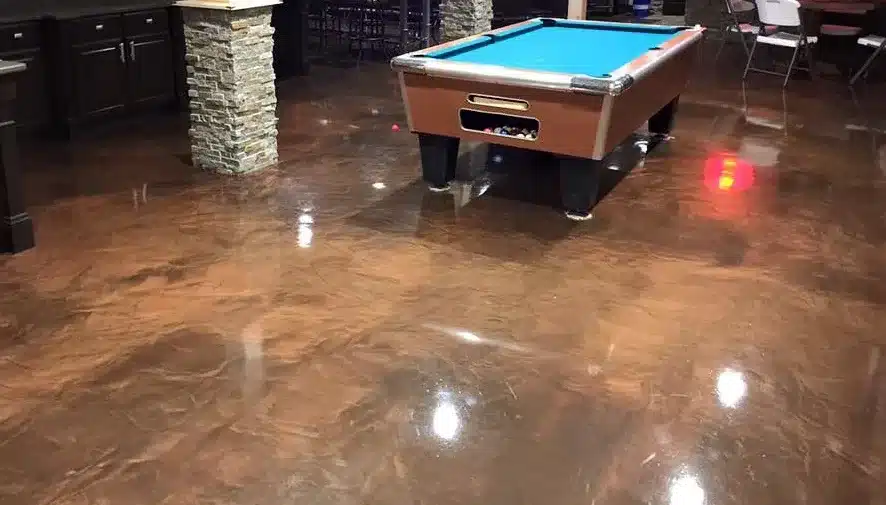
Epoxy flooring may be considered better than tile and concrete flooring in certain situations when specific needs and preferences align with its advantages. Here are some key points where epoxy flooring may stand out as a superior choice:
- Durability and Resistance: Epoxy flooring is highly durable and resistant to a range of factors such as chemicals, stains, and impact. This makes it an excellent choice for high-traffic areas, industrial spaces, or locations prone to spills and accidents.
- Customization: Epoxy flooring offers a high level of customization in terms of colors and patterns. If you have a specific aesthetic in mind or want to create a unique look, epoxy can provide more design flexibility than standard tile or concrete.
- Seamless Surface: Epoxy creates a seamless, monolithic surface, which can be easier to clean and maintain than tiled surfaces with grout lines. This can be particularly advantageous in environments where cleanliness is crucial.
- Longevity: When properly installed and maintained, epoxy flooring can last for many years, potentially outlasting tile or concrete surfaces. This can lead to cost savings over time as it reduces the need for frequent replacements.
- Chemical Resistance: Epoxy’s resistance to chemicals makes it an ideal choice for environments where spills of corrosive substances are common, such as laboratories or industrial facilities.
- Quick Installation: In some cases, epoxy flooring can be installed more quickly than tile or concrete, reducing downtime in commercial or industrial settings.
- Low Maintenance: Epoxy flooring generally requires minimal maintenance, mainly consisting of regular sweeping and occasional mopping. It doesn’t need resealing or grout maintenance like tile or concrete.
- Safety: Epoxy flooring can be designed to have anti-slip properties, enhancing safety in areas where slip-and-fall accidents are a concern.
